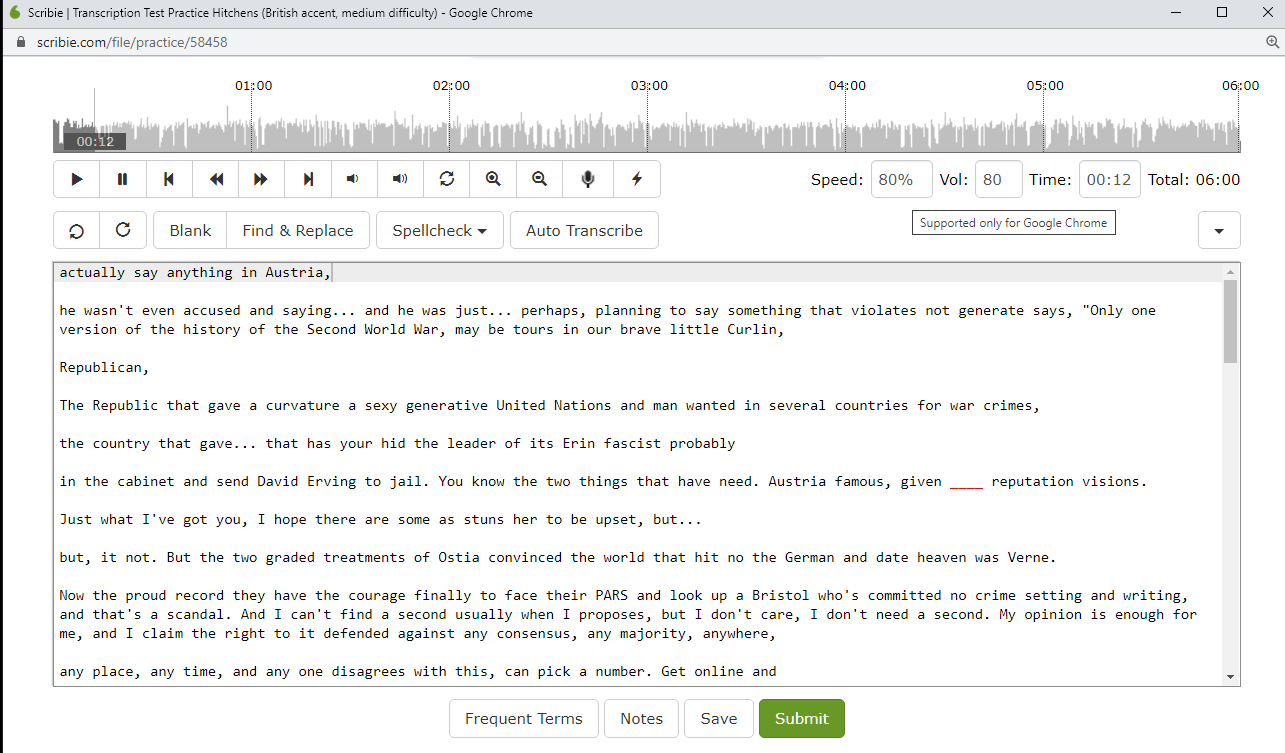
“The single most important key to success is to be a good listener.” ― Kelly Wearstler.
While many of us invest in improving our speaking skills, developing our ability to listen is wildly underrated. A study shows that we spend 45% listening as a form of communication.
However, unlike in an actual conversation, transcribers cannot ask the speakers to repeat what they said for clarification. While they can replay the audio, they’ll only hear the same thing again.
While transcribing files may look simple, it takes skills and hard work for you to deliver accurate transcripts. Scribie transcribers will need to rely on their listening, comprehension, and research skills to decipher audio files.
There will be instances that you may find yourself struggling to understand the audio file. However, if you’re interested in growing a career in transcription, having good listening skills will benefit you in the long run.
Read on as we share the benefits of improving your listening skills and some tips and exercises that you can try.
Benefits of Improving your English Listening Skills
Understand English Speakers With Different Accents
The English language is diverse. There’s British English, American English, Canadian English, and Australian English, to name a few.
There will be cases wherein the audio file you will work on will have a non-North American accent. However, if your English listening skills are up to par, it can help you figure out what the speaker is saying, even if it’s an unfamiliar accent or dialect.
You Can Learn New Words and Expressions
As you get accustomed to listening to different audio files, podcasts, audiobooks, or conversations, you will learn new words and expressions. These phrases and words are not just applicable in work but also in everyday life. Improving your vocabulary is not only good for your listening skills as it also makes you a better speaker.
Learning New Languages
If you’re keen to learn a new language, developing your listening skills can help you achieve your goal. The more you listen to a new language and understand how native speakers talk, the more you will get accustomed to their intonation and pronunciation, making it easier for you to transcribe audio files.
Improve Your Listening Skills With These Tips
Acquiring a good sense of listening and comprehension does not happen overnight. However, you can devote a couple of hours a day to practice until it becomes a habit. Here are some tips to get you started in developing your listening skills.
Let’s start!
Listen and Read Simultaneously
If you’re fond of watching movies, Fluentup suggests maximizing the use of subtitles. You can binge a TV series that keeps you engaged. While at it, turn the subtitles on.
You can also practice with audiobooks by listening to the audio as you read the actual book.
You can use the subtitles or transcripts to help you understand what your ears cannot recognize. This exercise aims to get you familiar with words, phrases, idioms and, quickly look at what it means and understand how it was used.
When doing this exercise, you can close your eyes and focus on listening to the audio.
If there’s a part that you did not understand well, you can check the transcript for reference.
It’s okay to rewind the same part of the audio until you understand what is being said without using the subtitles.
Practice With Different Audio Speed
As you watch or listen online, you can also adjust the playback speed. You can utilize this feature if you find that the audio contains fancy words, hard to understand accent, and complex grammar structures that you’re not used to.
According to Executive Mind, listening to the audio at a slower speed helps your brain process what it is hearing.

ETJ English via YouTube
If you slow down the audio, it’s suggested not to go below 60% to avoid hearing a distorted voice or having the words pronounced longer than they should be.
Once you get comfortable, you can change the pace to its average speed, or you can increase the speed to 1.25 or 1.5 and see if you’re still able to catch the words that are spoken.
If you’re interested in listening to examples of audio files that we transcribe, Scribie also has practice files that you can listen to. Try adjusting the playback speed to see how you can speed up the process.

Listen to Different Accents
Understanding some English accents may not be a walk in the park for some. Don’t worry, it happens to most of us.
It is suggested that exposing yourself to several languages can help you familiarize yourself with different accents and vocabulary.
If you’re struggling with understanding British accents, you can try to watch British TV shows or listen to British podcasts for a month. It’s said that in 30 days of continuous listening, you will get used to the accent, making it easier for you to understand spoken British languages better.
Listen While You Snooze
An interesting way to learn a new language is by listening to audio while sleeping.
According to recent studies, our brain continuously processes information even if we’re sleeping.
If we put this into practice, we can constantly speed up the learning process by devoting some free time to study the language, even if we’re asleep.
Over to You
Transcribing audio with different English accents is our forte, and as Scribie transcribers, you may have encountered a difficult file at one point in your career.
As you continue to master your craft, developing your listening skills will significantly benefit you, particularly in this line of work.
What kind of audio files are you having a tough time listening to, and how do you work around it? We’d love to hear your tips!

